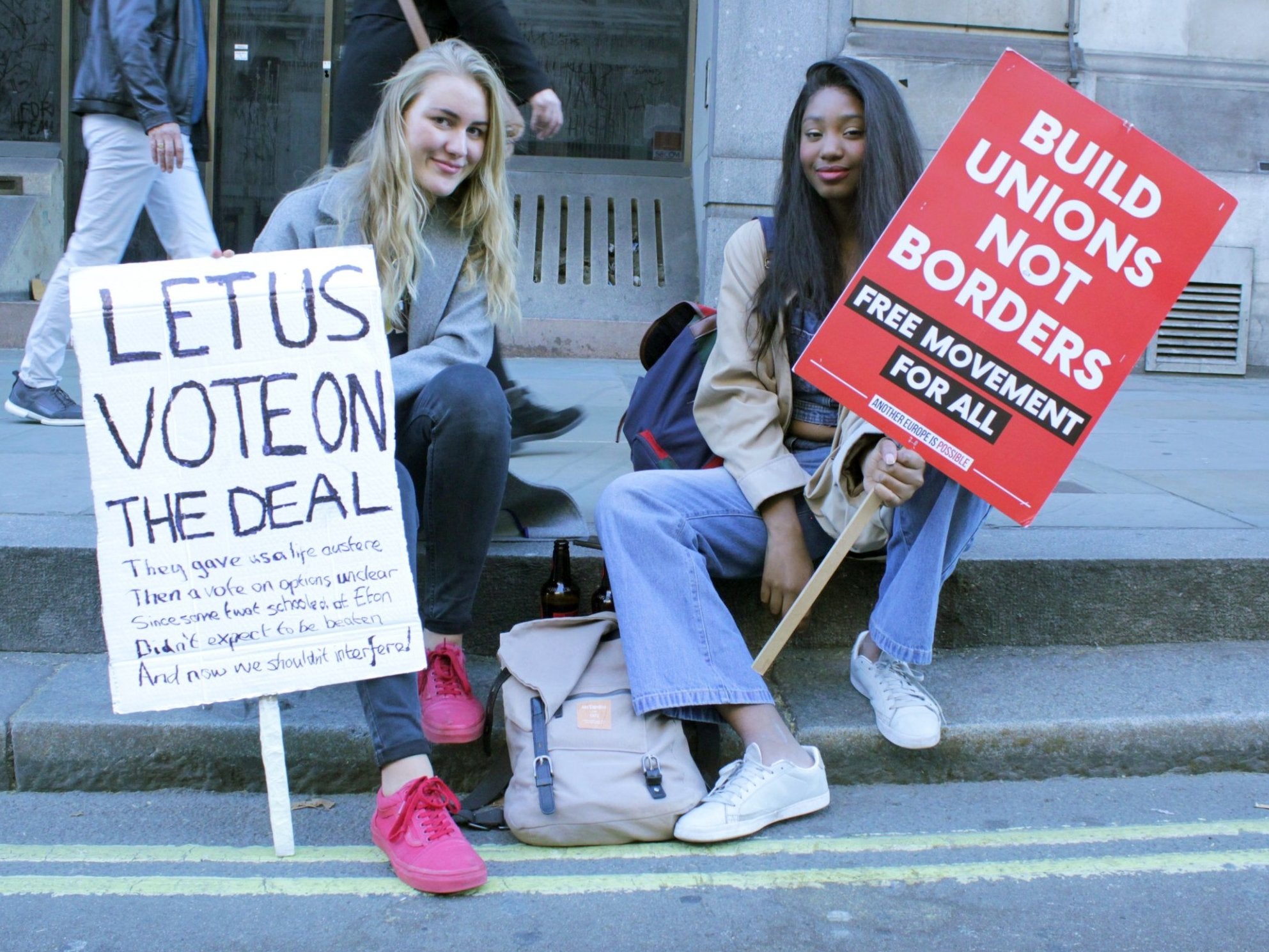Now Boris Johnson has struck his deal, it's time to put Brexit back in the hands of the people
Editorial: Britain has lived in a state of permanent debate for three years. Our voters can now be said to be the best educated in the world

Sent out to flog Boris Johnson’s Brexit deal, Michael Gove put the best spin he could on it: “The backstop’s been ditched.”
He is right, in a technical sense. The Ireland-Northern Ireland protocol in the original UK-EU withdrawal agreement has indeed been replaced by a new one, but only by retaining Northern Ireland in much of the EU single market and by applying the rules of the EU customs union. In essence, the old backstop has been replaced by a new backstop.
The constitutional implications are plain: if this deal is ever implemented it will mean a double economic border down the Irish Sea, with only a patchy arrangement for winning the democratic consent of the people of Northern Ireland.
This Conservative and Unionist government, with Mr Johnson styling himself as “Minister for Union”, has handed Sinn Fein a veto on Northern Ireland’s withdrawal from the new backstop.
Hence the resistance of the Democratic Unionist Party to Mr Johnson’s deal – one that is, for the province, even worse than the deal Theresa May first negotiated. It seems a long time ago indeed that she was able to declare to the House of Commons that, “We have always recognised that there are unique circumstances that apply in Northern Ireland – for example in relation to checks for some agricultural products.
“But what we cannot accept is seeing Northern Ireland carved away from the UK customs territory because regardless of where the checks would be, what that would mean would be that it would be a challenge to our constitutional and economic integrity.”
One of her harshest critics at the time was Mr Johnson, who described a similar proposed arrangement at the time as “crazy”, while Jacob Rees-Mogg wrote it off as “cretinous”. As Mr Rees-Mogg has acknowledged, cabinet ministers will have to sit down to an extensive banquet of their tasty rhetoric when the time comes for them to eat their words.
Mr Johnson’s contemptuous attitude to Northern Ireland is on the record – he sees it as “the tail wagging the dog” – and is in stark contrast to his opportunistic embrace of Arlene Foster and her colleagues at the DUP conference. Members of the DUP will be right to judge that Mr Johnson has treated them like he has partners in any of his many romantic dalliances – with the morals of an alley cat.
Nor are things looking any better elsewhere in the House of Commons. All the opposition parties and some government backbenchers are, at last, uniting behind the democratic imperative of submitting these terms of Brexit, such as they are, to a Final Say referendum. It is, in fact, the only guaranteed way that the Johnson deal will be approved even in principle by parliament.
Having so foolishly withdrawn the whip from the Tory rebels, and having now disappointed his former DUP allies and the so-called Spartans, Mr Johnson has few friends and many opponents as he looks around the benches for support in tomorrow’s votes. There will be amendments to his plan, just as there were for the May deal, which will wreck the new agreement just as they destroyed the old one. Perhaps Mr Johnson’s premiership will also end in tears – yet another Tory leader shredded by the European issue.
The majorities against Mr Johnson will be smaller than they were for Ms May, but as she used to say, at least in the sense that yet another UK-EU withdrawal agreement and political declaration cannot command a majority in the Commons, “nothing has changed”.
Mr Johnson tried and failed to disprove the iron law of contemporary politics. It is axiomatic that any Brexit deal that is acceptable to the European Union will be unacceptable to the House of Commons and vice versa. For a time, EU chief negotiator Michel Barnier thought he detected a “narrow path” for an agreement. However that was a triumph of hope over experience, and the Johnson deal has proved to be merely another false dawn. Soon the blame game will resume, which will be vicious but futile.
The best outcome, and one that is looking more likely than ever, is that parliament itself compromises with reality and passes the responsibility for approving the terms of Brexit back to where that decision belongs – in the hands of the people. What was begun by the voters in June 2016 can only be completed by them now, probably in the spring of 2020.
In truth, the referendum campaign never actually ended in 2016. Since then we have had a general election, European elections and incessant discussion and rehearsal of all the arguments across the media and social media. Most of the population know as much as they will ever wish to know about trade policy and hard borders.
Britain has lived in a state of permanent debate and relentless scrutiny of facts, claims and counterclaims for three years. The British voter can fairly be said to be the best educated in the world. The time has come to make the decision, and the decision must be made by the people.
Join our commenting forum
Join thought-provoking conversations, follow other Independent readers and see their replies
Comments